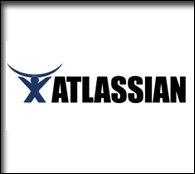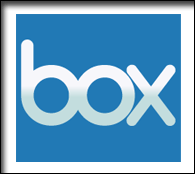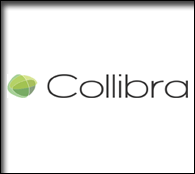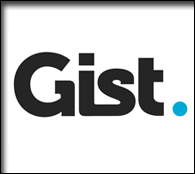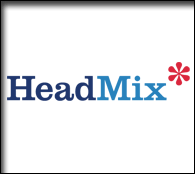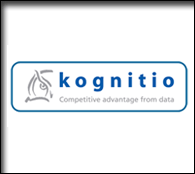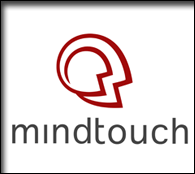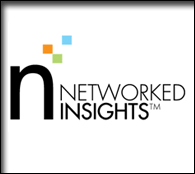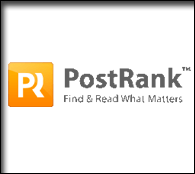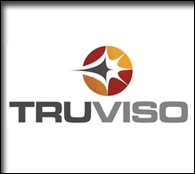industry stuff
Fun with the “Contrarian Jason” indicator
by Eric Norlin on Apr.18, 2008, under general, industry stuff
Defrag advisor and friend, Paul Kedrosky likes data.
Several months back, we were joking via email about “contrarian indicators” - or the idea that you can derive useful intelligence by going against a prominent opinion. So, for example, when Time magazine puts a “recession” on the cover, you should go “buy” the stock market (or, conversely, when Barron’s puts the “bull market” on the cover, you should sell).
I joked with Paul that I was going to start tracking a “contrarian jason” indicator — or a buy signal based upon the idea that when Jason Calacanis mentions the recession, its a good time to “get long.” Now, for the record, I’m just poking fun at Jason - I’ve actually never met him (I think we’ve emailed once or twice), but he just seemed an easy “contrarian” target because he is so vocal, so well-known and so “mainstream” in the small world that is tech alpha geeks.
My indicator is based upon getting long (buying) the Nasdaq composite on any day that Jason mentions “recession” in a negative sense on his blog, twitter stream, etc - and then holding that trade for 30 days (with an assumed “sell” at the end of the 30 days). Like I said, just some good, ole-fashioned, fun with data!
Here are the results, so far (all results hypothetical, not tested with real money):
8/20/07 Trade initiated; closed out for a 5.8% gain.
3/3/08 Trade initiated; closed out for a 4.6% gain.
3/4/08 Trade initiated; closed out for a 4.8% gain.
3/6/08 Trade initiated; closed out for a 5.0% gain.
4/14/08 Trade initiated; still open — currently sitting on a 5.8% gain.
As you can see, the contrarian jason indicator is hitting it outta the park! Obviously, no one should take this seriously, or actually trade based on this - but I will continue to watch the “contrarian jason” — though the question is now open: if jason knows about the contrarian jason, does it spoil future results. And secondarily, can the contrarian jason also act as a sell signal (or a “get short” signal).
Fun with data on a Friday!
More ya-ya for the gumbo
by Eric Norlin on Feb.25, 2008, under general, industry stuff
Brian Oberkirch is one of my favorite bloggers for several reasons: 1) he’s from nawlins (that’s “New Orleans”); 2) he’s one helluva writer; and 3) he’s always thinking really cool thoughts. And so, when I read Brian saying that he feels like the internet conversation is becoming Gumbo ya-ya — well, you just gotta love it.
What, you ask is “gumbo ya-ya”?
Quoting:
“I’ve whinged before that everything online just feels like gumbo ya-ya, everyone talking at once. Techmeme & my trusty feed reader just aren’t doing it anymore. I’ve gone through a few rounds of blowing up all my feeds and adding them back. What I’ve hit on lately, and what feels right, is just following those who I think are the smartest, most courageous, savvy, inspiring people. Sometimes they blog, but more often I’m following their bookmarks, what events they pick, books they recommend.”
Yep - Brian’s getting implicit. He goes on to talk about FriendFeed, SocialThing and Jaiku - all of which (collectively) I’m wrapping my head around. But the problem is there: we live in a distributed land of abundant information — and reaching any level of insight on that raw data demands that we develop effective tools to help us. (And NO we do not need YAP ["yet another platform"].)
(note to self: Get Brian to this year’s Defrag - he had to miss last year because of a client engagement.)
The SharePoint and collaboration driver
by Eric Norlin on Jan.25, 2008, under general, industry stuff
Microsoft’s earnings announcement has me thinking about SharePoint this morning. I still think that the *huge* success of SharePoint in 2007 is the great unwritten story. I’ve heard folks like Brad Feld and Jeff Nolan mention it, and I know that Microsoft partner companies in the trenches are well aware of it, but I have yet to see the “press” pick the story up (maybe I just missed it). I also have yet to see anyone breaking out what kind of effect that success had on the “MBD” (office and sharepoint) division at Microsoft. If anyone has that info, I’d love to see it.
At a higher level, the success of SharePoint speaks volumes about what’s happening in one of the intersections that Defrag occupies (collaboration and information overload). And it gets even “interesting-er” as you mix in posts like this one from Matt Tucker over at Jive Software (Jive’s own Dawn Foster was at the last Defrag).
I see two big trends emerging:
1. “Collaboration” is not a “nice to have” IT purchase: C-level types tend to see IT spending in 2 camps — “nice to have” and “must have.” Or, more traditionally, “productivity enhancing” and “cost reduction.” No matter how you slice that pie, most people would think of “collaboration tools” as “nice to have” purchases. Except for one small problem: People who are not “IT purchasers” can easily set up collaboration tools for themselves. The result is a collaboration environment run wild — as employees set up blogs, wikis, rss feeds, gmail accounts (and who knows what else) that are A) not under the “control” of IT and B) may not even live inside of the corporate firewall. As such, IT seems to be waking up to the fact that they *must* get their hands around what’s happening in terms of collaboration, or risk running into data protection and compliance issues that are a pure nightmare waiting to happen. Throw in the business intelligence and productivity benefits, and you suddenly find collaboration to be a “must have” purchase.
2. IT architecture is increasingly cloud-based: To limit collaboration strictly to “on-premise” software that lives strictly within the firewall takes away at least 50% of the benefit. As such, companies like Jive (and Microsoft) are pushing on how to stretch the architecture of their products to more closely reflect the “cloud reality” that most *users* take for granted. This trend makes things like RSS and XMPP (call them “cloud protocols” for lack of a better term) extremely interesting.
All of that may seem a little “in the trenches”, but the result is a mix of rss, twitters, blogs, wikis, shared documents, distributed widgets and business intelligence that can significantly increase the rate at which individuals and organizations can turn raw *data* into actual insight…ie, the very thing that we think Defrag is about (that process). It also opens the door for a whole bunch of other “stuff” around ambient tools (me.dium) and semantic tools (AdaptiveBlue) that we have yet to really think through.
Will 2008 be the year that collaboration success turns into collaboration disillusionment? I don’t think so. Granted, there are some serious problems around authorization and authentication (see Cisco’s collaboration-related acquisition of Securent for an interesting thread on this), but I don’t think that slows this train down.
The “problem” of re-arranging how we deal with data, so that the organization, discovery, usefulness and intelligence of it becomes an *implicit* act is one of the truly great problems facing technologists (in both an enterprise and user-facing sense). And its the sheer scope (both technologically and organizationally) of the problem that keeps me knowing that we have some seriously fertile ground to till at Defrag.
And for my fellow “macro” folks: Will Microsoft’s earnings renew faith in the tech sector’s “immunity” from the current slowdown? This morning’s futures look good (to be sure), though I’d tend to think we have to “test the bottom” one more time. That said, I think John Chambers will prove to be prophetic in his 2007 talks about how what’s happening around collaboration in the enterprise will be the next great driver in technology.
[Later: Pete blogs about The Silent Rise of SharePoint and points to a report that details SharePoint's growing dominance (50% of Exchange deployments use SharePoint; number of SharePoint apps expected to *quadruple* this year). Wow.]
“That is not possible” - oh really?
by Eric Norlin on Jan.11, 2008, under general, industry stuff
One of the things that was top of my mind when Brad and I first spoke about launching Defrag was to get tech folks out of California; to highlight the fact that innovation occurs all over the place, while giving our California friends a chance to step out of the echo-chamber that is so often existing in the Bay Area and the Valley.
By all accounts, it worked and folks just “felt” differently when they were at Defrag.
This morning I awake to a NYT’s piece about how California is going to take control of people’s thermostats (in times of crisis). The piece actually kind of strikes me as something I expect to hear coming out of California, until I read this last little bit (quoting):
“Mr. Somsel, in an interview Thursday, said he had done further research and was concerned that the radio signal — or the Internet instructions that would be sent, in an emergency, from utilities’ central control stations to the broadcasters sending the FM signal — could be hacked into.
That is not possible, said Nicole Tam, a spokeswoman for P.G.& E. who works with the pilot program in Stockton. Radio pages ‘are encrypted and encoded,’ Ms. Tam said.”
“That is not possible”???!!! - I almost blew coffee through my nose when I read that. I mean, unless PG&E has surpassed certain government intelligence agencies in their encryption standards, it most certainly *is* possible. Not only that, but it presents one hell of a nice target (if you’re a bad guy), and the fact that she’s out there saying its not possible will almost inevitably be seen as a challenge by some (we all know that).
Wow.
I guess I *really* wouldn’t want to be running a California-based data center if this all comes to pass…
“around the US?”
by Eric Norlin on Dec.31, 2007, under Uncategorized, industry stuff
I just read this post about Facebook choosing their first possible companies to fund — and the good news is that the companies get to present at locations “around the US.” Quoting:
“We’re scheduling a series of events around the US at which we invite you to give a 10-minute presentation of your proposal.
We’re currently planning the following events:
Silicon Valley: Monday afternoon, 1/7/08, 11:30am - 1:30pm
San Francisco: Tuesday evening, 1/8/08, 6:30pm - 8:30pm
New York City: Thursday evening, 1/10/08, 6:30pm - 8:30pm”
Huh??
Since when does the valley, SanFran and NYC count as “around the US?” And even more to my point, why have *both* the valley and SanFran? Because you didn’t want to have to force those budding entrepreneurs to travel?! Pffft.
To be fair, they go on to say that they’re planning other events that people can present at, but c’mon. I’d have been impressed if the first 3 events were Chicago, St. Louis and New Orleans (or Minneapolis, Denver, Dallas, or Atlanta, Chicago, Seattle, or)….
Or maybe I’m just being curmudgeonly. Back to your usual new year’s programming…
Congrats to NewsGator
by Eric Norlin on Dec.13, 2007, under industry stuff
I’ve been “out of the office” for a few days, and am returning to find that NewsGator has closed on a new round of funding. Huge congratulations to the team there. I’ve known Jeff Nolan for several years, and have recently gotten to know Greg and JB. They’re a great bunch of folks working on some really exciting stuff.
I’m looking forward to seeing how the road unfolds for NewsGator. ![]()
Mourning Marc’s passing
by Eric Norlin on Dec.10, 2007, under industry stuff
I met Marc Orchant only once — at the most recent Defrag. In the few minutes that we spent interacting, I found Marc to be a highly engaging, open and giving individual. And everything I’ve heard from his peers supports my sentiment and so much more.
And so it is with great sadness that I’m reading about Marc’s passing. Our thoughts are with Marc’s family and friends as we mourn this loss.
The most significant news of the day
by Eric Norlin on Nov.02, 2007, under industry stuff
I said before that the whole OpenSocial announcement left me kind of flat. Don Dodge is feeling similar feelings. So, while the Valley *freaks* out and echoes its way into hysteric proclamations of Facebook’s death, I’d like to point out the *truly* significant news of the day:
Cisco acquired Securent.
Sounds boring, right? Just a security company being bought by Cisco as they try to figure out their identity and access management strategy, right?
Wrong and wrong.
Securent is an authorization and policy management company. Securent was not purchased by the security group inside of Cisco (so, note to every tech journalist out there, stop filing this story under “security” - ugh), it was purchased by the COLLABORATION group inside of Cisco. Ahhh, and things get interesting-er…
Now, take this one bit of news and combine it with Microsoft opening up Sharepoint to accept claims-based authorizations (that’s a bit technical, but basically you’re no longer chained to Active Directory), and suddenly the light begins to shine.
John Chambers (of Cisco) has been sounding the trumpet about “enterprise 2.0″ technologies for months now. In fact, you might remember that Cisco also acquired Webex. The purchase of an authorization management company by essentially a collaboration company tells us that collaborative tools are about to get *serious* inside of the enterprise. All of which goes back to the thesis that Brad and I have been kicking back and forth — that 2008 is the year of the beginning of the enterprise IT spending surge.
So, while all of the fanboys are busy doing the social graph dance, the current of real value (and money) is flowing beneath them.
Sure, pay attention to the OpenSocial stuff — but realize what it is — so far, nothing.
And then watch what is becoming reality — a wave of enterprise spending on “collaborative” technologies.
By the way, if you’re coming to Defrag, you’ll be hearing more about this from Michael Barrett, the CISO at PayPal…
Maybe I’m just tired
by Eric Norlin on Oct.31, 2007, under industry stuff
Big news of the day: OpenSocial (see here, here, or here for coverage).
So:
A) We all knew this was coming (didn’t we?).
B) It *is* a good thing,
…but…
I’m really left flat by the whole thing. Maybe that’s because we knew it was coming; maybe it is because I’m just tired; or maybe (maybe) there’s something bigger in my reaction.
I think the whole “open social graph/user controlled data” space is very necessary, and nearly inevitable — I’m just not excited by the APIs that make it happen. I mean, from a user’s perspective there’s nothing here that makes me stand up and shout.
Is that just me?
P.S. Defrag. Next week. Be there. (Everyone else will be.)
Digesting the “S” curve
by Eric Norlin on Oct.30, 2007, under industry stuff
The brouhaha over our collective “bubble” just doesn’t stop. Steve Rubel’s most recent piece is the catalyst this time around — something that Alex responds to (good stuff!).
Some quick thoughts:
1. The trauma of the last dot-com bust certainly has an effect. Folks that lived through that are going to be much more likely to “call the top” the second time around, partly out of their own instinctual drives for survival. Plus, its always easier to look really smart if you called the bubble popping. Bottom line: Our individual abilities to “call tops” has been skewed by the leanings of our experience.
2. I think Alex is right - this is a digestion phase. One thing you can *always* find in bubbles is a digestion phase. In the last bubble, about mid-way through, we had a nice little mini-slowdown that shook things out. That digestion phase cleared the path for the real explosion (”the bubble”). This is where I believe we are *right* now.
3. “Calling the top” actually helps us avoid a bubble. Thank you.
4. The valley is an echo-chamber. No doubt about it. Does the valley feel “bubble-like” - absolutely. How can you tell what the rest of the world feels like? LEAVE that environment.
Honestly, I’m getting tired of the bubble-calling, but I know that it is a very necessary part of the process. Next up: ENTERPRISE ADOPTION. That (sometime in late 2008) will begin driving the next phase of bubble-blowing.
Watch for it. And learn what it’ll all be about at Defrag. ![]()
